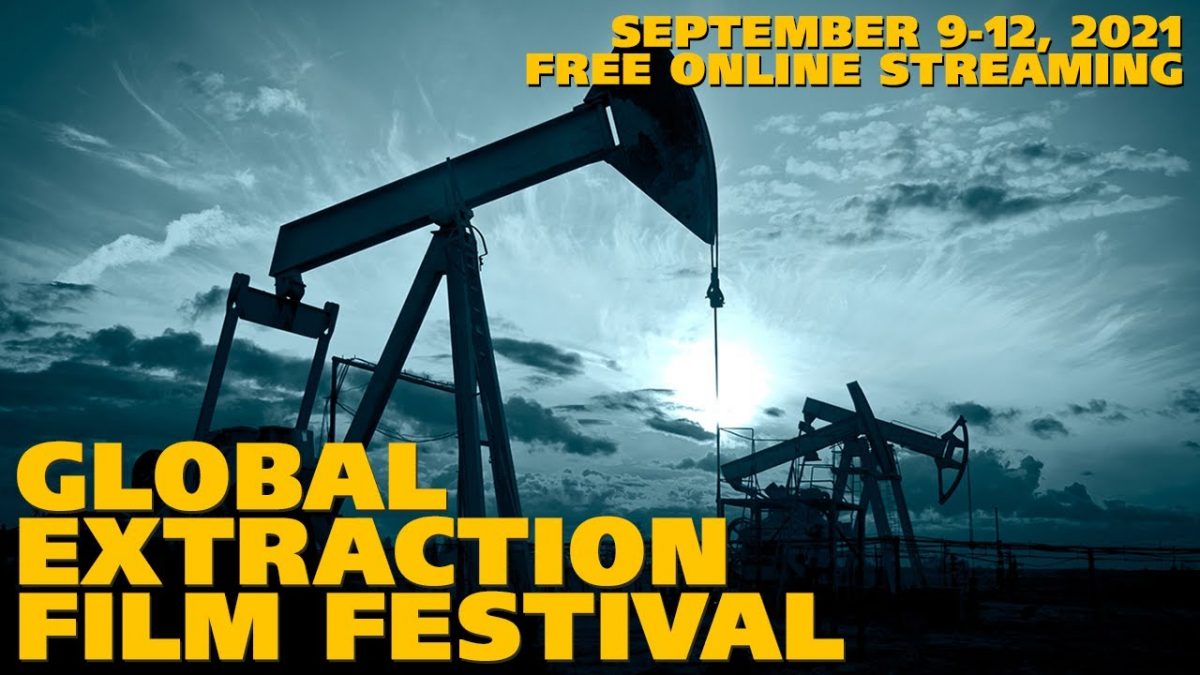By Esther Figueroa
 Esther Figueroa, Ph.D. is an activist independent film maker, writer, linguist and educator who focuses on the environment, social justice, indigenous knowledges and local content. “Limbo” , her 2014 novel about Jamaica is an environmental murder mystery. Her feature documentary “Fly Me To The Moon” is about aluminum, modernity, the political economy of our material culture and consumption, and is a call for us to stop destroying the natural world that we all depend upon.
Esther Figueroa, Ph.D. is an activist independent film maker, writer, linguist and educator who focuses on the environment, social justice, indigenous knowledges and local content. “Limbo” , her 2014 novel about Jamaica is an environmental murder mystery. Her feature documentary “Fly Me To The Moon” is about aluminum, modernity, the political economy of our material culture and consumption, and is a call for us to stop destroying the natural world that we all depend upon.
By April 2020, because of the Covid-19 pandemic, most countries had stay-at-home orders and had closed their borders. Planes were parked, and places normally overcrowded were now empty of people, with curious animals wandering around urban centers and returning to beaches, shorelines and waterways that had once been their habitat. The air was miraculously clean and residents of Delhi could see the Himalayas for the first time in generations. These sudden changes led to talk of the Covid-19 Portal through which we would travel and come out the other side Transformed, we would never Return to Normal because Normal was the Problem, and we would Build Back Better, and Build Back Greener…. There was lots of sharing of nature-in-recovery pictures and let’s-take-hold-of-this-opportunity-to-change memes.
Being from the Caribbean, I knew that no disaster goes unleveraged by vulture capitalism, that because of the pandemic governments would take on further debt that would lead to ever more desperate decision-making, likewise for their citizens who had lost their already poorly paid and tenuous employment. I knew that the emergency powers granted to governments and individual rulers would mean that legal frameworks providing a veneer of protection to the natural environment and groups of people already terrorized by colonial structures, could be waived or done away with or rewritten with no participation from the governed and no opposition allowed. Antigua had already used the excuse of 2017 Category Five Hurricane Irma to remove the residents of Barbuda through forced evacuations, then annulled the collective land ownership customary law of Barbuda so as to enable the construction of luxury private housing.
I also knew that the extractive industries would be promoted as the solution for economic “growth,” both during the pandemic induced economic collapse, and the later attempts at economic recovery. In this way, the IMF and the World Bank, to whom countries immediately clambered for relief, have been promoting extraction as good for “developing” nations while making glossy pronouncements about only funding Best Practices that protect the natural environment and vulnerable citizens. It is after all the World Bank loan that facilitated Guyana becoming the latest site of major oil production, and also immediately indebted the Guyana government before it earned a dollar of royalties from said oil extraction. With interruptions in global production and supply chains, many minerals, metals and extraction dependent products are at premium prices with extractive industries expanding at a feverish pace. The Brazilian Amazon is currently being deforested at the highest rate in over a decade.
To counter the 2020 narrative that Covid-19 was saving the planet, Emiel Martens (Caribbean Creativity) and I launched the first Global Extraction Film Festival to bring attention to the destructive impacts of extractive industries and the communities across the world who are bravely defending against annihilation, while creating livable futures. GEFF2021 was streamed free online worldwide July 16-20.
Global Extraction Film Festival returns 9-12 September, and will again be streamed free online worldwide, this time with 4 Film Programs consisting of over 150 documentaries and shorts from over 40 countries. Film Program 1 – Global Perspectives, showcases 27 feature documentaries and shorts that focus on interrelated issues affecting the world -the climate crisis, water, food, energy, mining, overtourism, colonial legacies. Film Program 2 – Focus on the Americas, offers over 100 feature documentaries and shorts from 30 countries in the Americas including Guyana, with films from Argentina in the South to Canada in the North and across the Caribbean islands. Film Program 3 – Animal-Human Studies, offers over 10 feature documentaries and shorts that focus on the relationship between humans and animals, and the impact of the extractive industries on animals. Film Program 4 – Presented by Patagonia, showcases 8 feature documentaries and shorts produced by Patagonia Films about people fighting for environmental and food justice, to protect last wild places and species, to find community based solutions.
There will also be four virtual events, hosted by GEFF2021 partners London Mining Network, Deep Green Resistance, Asia-Pacific Ecological Network and Freedom Imaginaries. These events will discuss the greenwashing and extraction inherent in “green” technological solutions; the BHP disaster in Latin America, filmmaking and creative resistance; and decolonial perspectives on extractivism in the Caribbean.
GEFF2021 provides a rich and expansive selection of films, from award winning feature documentaries exclusive to the festival, to shorts produced by on the ground activists. Watching these films will definitely be worth your time; they will help you better understand yourself, your region and the planet.
For more information visit the GEFF2021 website:
https://www.caribbeancreativity.nl/events/global-extraction-film-festival-2021/
You can also watch the trailer at: VIMEO.COM/592260148 or https://youtu.be/kkHHIpDeXy4

